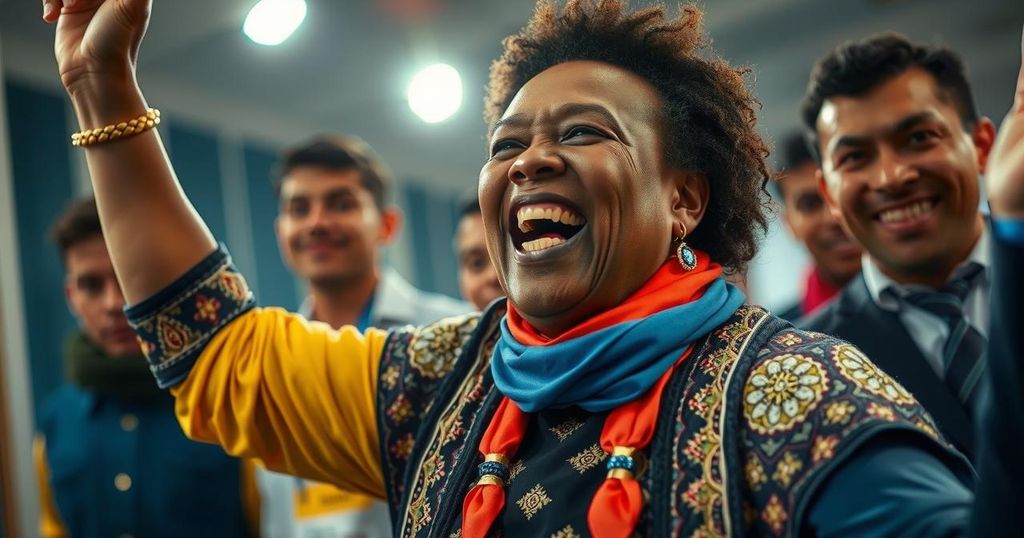Yamandu Orsi, the opposition centre-left candidate, wins the presidential runoff in Uruguay with 49.77% of the votes, defeating conservative Alvaro Delgado. Both Delgado and outgoing President Luis Lacalle Pou acknowledged Orsi’s victory, emphasizing a spirit of cooperation. This election reflects a broader trend of voters seeking change from incumbent parties amid pressing social issues.
In a decisive outcome for Uruguay’s political landscape, opposition candidate Yamandu Orsi emerged victorious in the presidential runoff election, securing 49.77% of the votes compared to conservative Alvaro Delgado’s 45.94%. As Uruguayans celebrated this shift in leadership, both Delgado and outgoing President Luis Lacalle Pou congratulated Orsi, indicating a spirit of cooperation that reflects Uruguay’s relatively stable political climate. Orsi’s success marks a continuation of the global trend where incumbent parties increasingly lose support during pivotal elections.
Yamandu Orsi, representing the Broad Front party, previously a two-time mayor and working-class history teacher, addressed a cheering crowd in Montevideo. He emphasized the values of freedom and equality in his victory speech and assured citizens that his administration would not seek dramatic policy shifts in the traditionally moderate nation. His campaign resonated with voters concerned about issues such as high living costs and violent crime, aligning with a modern leftist perspective that prioritizes support for the working class.
This election occurred within a year marked by significant political transitions across various countries, including Latin America, where political tensions have been notably high. However, Uruguay’s electorate demonstrated a preference for stability and gradual reform over radical change. Despite the shift in presidency, neither major coalition commands a clear majority in the lower house following recent elections, setting the stage for potential negotiations as Orsi prepares to take office.
Political analysts note that Uruguay’s outcome reveals a broader tendency among voters worldwide to seek alternatives to governing parties amidst challenging social conditions. Although the ruling coalition under Lacalle Pou enjoyed some economic successes, they faced mounting pressure regarding crime and corruption, highlighting a state of political flux that characterized various elections preceding this significant turn in Uruguay’s governance. Orsi’s Broad Front significantly gained ground in the Senate, which positions him advantageously to implement his agenda.
In conclusion, the election of Yamandu Orsi represents a marked shift in Uruguay’s political scene, reflecting voters’ desires for change amidst ongoing economic and social challenges. With a commitment to work collaboratively with the outgoing administration, he is poised to pursue a path that prioritizes inclusivity and progressive policies. This electoral result not only underscores the ongoing political evolution in the region but also affirms Uruguay’s enduring stability in the face of fluctuating sentiments globally.
Uruguay, a country known for its democratic stability, beaches, and progressive policies such as legalized marijuana, has recently witnessed a significant political shift following the election of Yamandu Orsi. The election occurs against a backdrop of broader international electoral trends where incumbents are often challenged and defeated in favor of alternative candidates. This shift reflects voters’ growing concerns over pressing issues such as living costs, inequality, and crime, and showcases Uruguay’s comparatively conflict-free political landscape as it transitions power.
The election of Yamandu Orsi to the presidency of Uruguay not only signifies a rejection of the incumbent conservative coalition but also illustrates a broader global trend where voters are increasingly seeking change amidst societal concerns. With a commitment to a balanced approach to governance and collaboration across the political aisle, Orsi stands ready to lead Uruguay into a new chapter, addressing the economic and social challenges that lie ahead.
Original Source: www.theguardian.com






